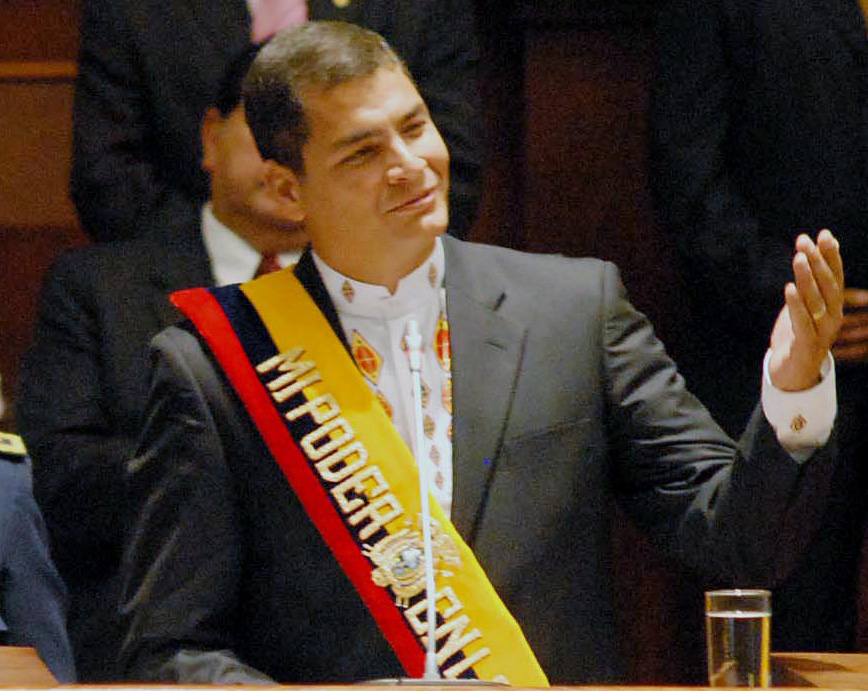On April 5, Ecuador’s President Rafael Correa rashly declared the U.S. Ambassador Heather Hodges persona non grata. Hodges has been ordered to leave the country in short order. The U.S. State Department rightly called the action “unjustified.”
The reason for Correa’s pique is the unauthorized release via WikiLeaks of a July 2009 cable asking for the revocation of the U.S. travel visa of Jaime Aquilino Hurtado Vaca, then commander of Ecuador’s national police. In the cable, the State Department drafter observed that “Hurtado’s corrupt activities were so widely known within the upper ranks of the [police] that some Embassy officials believe that President Correa must have been aware of them when he made the appointment.” The U.S. State Department regularly uses visa revocations as a tool for fighting corruption in Latin America and elsewhere around the world.
Hodges becomes the second ambassador in Latin America forced from their embassies in recent days because of WikiLeaks. In March, U.S. Ambassador to Mexico Carlos Pascual announced his resignation following displays of indignation by Mexican President Felipe Calderon over critical cables sent by Pascual to the State Department and leaked via WikiLeaks.
Correa’s actions are in keeping with his penchant for rash actions. This recent action recalls his intemperate behavior and wild allegations regarding alleged U.S. involvement in an effort to topple his government last year. Last September 30, Correa engaged in a showdown with the very police he is now adamantly defending.
Correa continues policies aimed at concentrating executive power, silencing media critics, and conducting dubious relations with a range of dangerous actors—from the narco-terrorists of the FARC in Colombia to Iran. Examinations conducted by investigative analyst Douglas Farah and former U.S. AID official Jose Cardenas paint an alarming portrait of the current state of affairs in Ecuador.
The expulsion follows less than a year after Secretary of State Hillary Clinton’s “friendship” visit to Quito. Representative Eliot Engel (D–NY) noted, “President Correa has seriously undermined the possibility that [trade] preferences [for Ecuador] will be reinstated in the foreseeable future.” Representative Connie Mack (R–FL) called for the removal of Ecuador’s ambassador to the U.S.
Correa joins with Venezuela’s Hugo Chavez and Bolivia’s Evo Morales in putting relations in the diplomatic deep-freeze because of U.S. concerns about corruption, lack of transparency, deterioration of democratic rules, and a generalized sentiment of anti-Americanism.
The goal of Correa and company is to insulate their officials from both domestic investigations and political opposition and criticisms and sanctions by foreign governments. It is a crude attempt to pressure U.S. diplomats to turn a blind eye to high-level corruption around them in order to keep their positions. The Obama Administration should not yield to these pressures.




























